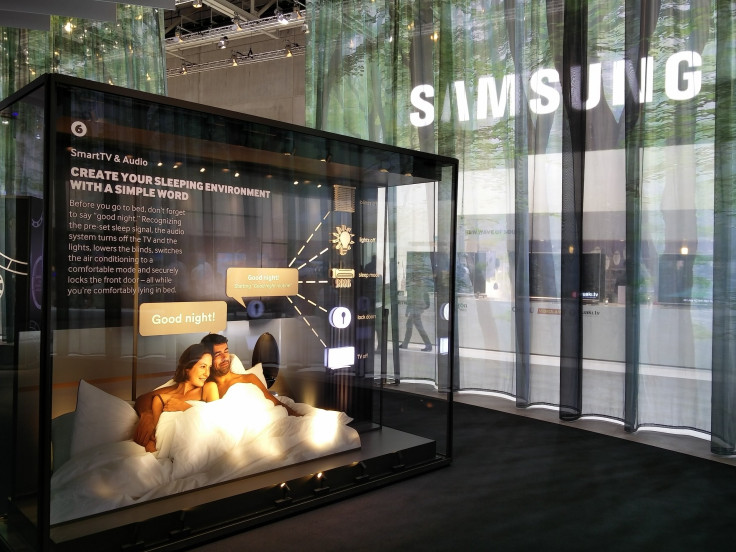SleepSense Monitor Starts Samsung's Big Push For Internet Of Things Domination

BERLIN -- Samsung isn’t scared to admit that it has been “feeling the pain” over the last five years in the European market, and globally its flagship smartphone business is going down he toilet very publicly and very quickly. But fear not as it has a new area where it will dominate (and generate revenues) in the coming years - and that is the Internet of Things.
Last year the company vaguely outlined its vision for doing so, having just acquired smart home company SmartThings. At CES in January Samsung president and CEO BK Yoon outlined in a breathless -- if a little over simplistic -- keynote the company’s his vision for the connected future with “infinite possibilities”.
At IFA 2015 in Berlin this week Samsung is finally putting some flesh on the bones of its push to become the Internet of Things king. The most eye-catching device was its SleepSense monitor which slides under your mattress and wirelessly monitors your heartbeat, movement and breathing before providing you with what it terms “medically-sound” advice on how well you slept and what you can do to improve it.
Because the SleepSense monitor is connected to the internet, it can also be used to remotely monitor someone else while they sleep, and while that does sound incredibly creepy, it could potentially be really useful in allow you to monitor a sick relative from a distance.
Credibility
In order to get that stamp of credibility, Samsung has partnered with Dr. Christos Mantzoros, a professor of medicine at the Harvard Medical School who is one of the world’s foremost authorities on the human metabolism.
On stage in Berlin, Dr. Mantzoros said that along with the amount of food and drink with consumer and exercise we take, the length and quality of our sleep is one of the most important factors that regulate our metabolism.
He said the “most people don’t really realise how they can improve our sleep” adding that he is very excited about the “really enormous opportunity that evolving technology is offering us” and “convert [my] expertise into real tangible benefits”.
During its presentation Samsung showed off a number of video outing how its sees our connected future panning out and part of this saw the SleepSense monitor working with your other connected devices to turn off the lights when you fall asleep, adjust the temperature to create a good sleeping environment and automatically open the curtains when you wake up.
Connected Home
This of course requires all your other devices to commuicate with each other and to that end Samsung also announced the launch of a refreshed SmartThings Hub which no longer needs to be connected to the cloud to work, and offers 10 hours of battery life which means it won't shut down in a power cut.
The Hub is used to connect and power a range of SmartThings sensors and switches which have also been refreshed and can now be used to connect one or more cameras - such as Google's Nest Cam - to the device. The SmartThings platform is open and it means that you can connect up to 200 devices from dozens of manufacturers which will be key for making the internent of things work in the future.
With Samsung eager to position itself as the IoT king, it announced that it would be expanding its SmartThings range outside the U.S. for the first time, beginning with the the U.K. later this month.
Samsung also announced a partnership with BMW which will allow you receive notifications from your smart home devices directly on the dashboard of your car. It is also working with Volkswagen in this area, and it is clear that Samsung is eager to work with anyone in order to get its smart technology at the heart of the internet of things.
Can the Internet of Things save Samsung? When you consider that in Europe alone in the last five years the company has sold 530 million consumer electronics products, then it surely is one of the companies best positioned to make its utopian vision of a connected future come to fruition. With the European Commission predicting that the market will be worth €1 trillion in Europe alone by 2020, then could it could be the thing that turns around Samsung's fortunes.
© Copyright IBTimes 2024. All rights reserved.






















